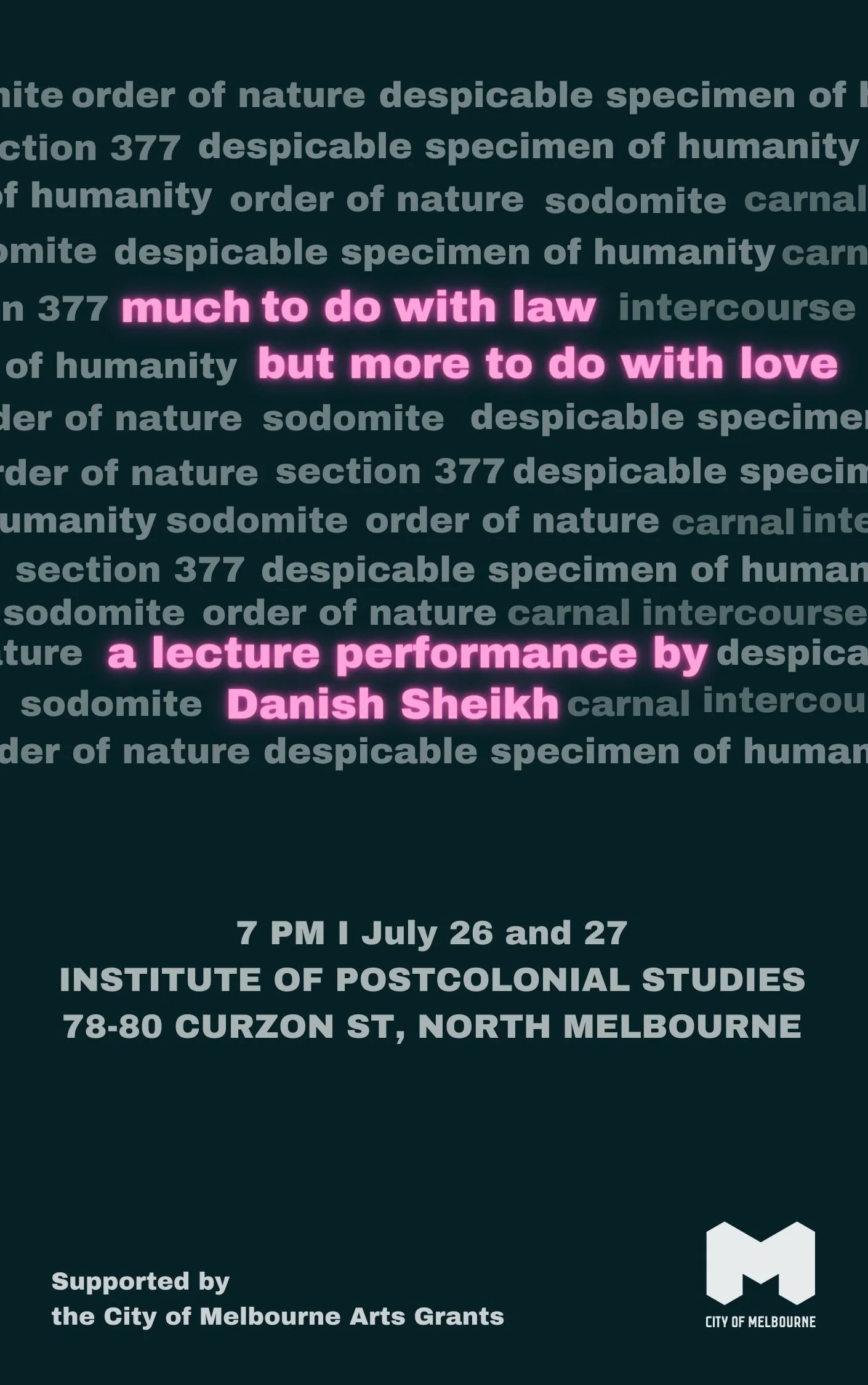Theatricalizing Law
"Love and Reparation offers any law teacher a rare opportunity to discuss with students the elusive relations of law and life. Contempt, the first play in this volume, demonstrates the necessity of drawing methods of text and performance together to illuminate how a trial is both an event of law, and also a form of political story telling about how people's lived experiences are exposed or transformed when they come to law. In my own experience, as an audience member, and as a teacher of the text, this is a work that stages informed, critical engagement with law, and important collective conversations about personal and public responsibility."
Professor Ann Genovese, Melbourne Law School, on my book Love and Reparation
As a genre, theatre allows me to explore the questions that haunt my research in elliptical and generative ways. My first two plays, Contempt and Pride, were published by Seagull Books and distributed by University of Chicago Press as ‘Love and Reparation: A Theatrical Response to the Section 377 Litigation in India’. You can find a series of review essays on the text as part of book forums conducted by the Journal of Bodies, Sexualities and Masculinities, and the Law and Other Things Blog. I’ve also become increasingly interested in lecture-performance as a mode of playing with the form of scholarly talks.
Much to do with law/ But more to do with love is a lecture performance that I first offered in 2023 with the dramaturgical support of Vidya Rajan and the City of Melbourne Arts Grants.
How can queer dissent can unlock the imaginative possibilities within the law? In this show, I dwell within a series of legal artifacts from the recent past: a contract drafted by two queer lovers in a small town in the late 90s; an affidavit written by a transgender woman in the early 2000s. Each of these documents tells a story of how queer persons in India found a way to live within the shadow of the sodomy law, through creatively reworking quotidian forms of law. I ask us to look at these accounts as resources for legal imagination.
You can watch a video of the show here.
Over a period of two months in 2012, the Supreme Court of India heard arguments on the constitutionality of Section 377 of the Indian Penal Code. The Court ultimately held that the law did not violate the Indian Constitution, leaving millions of queer persons vulnerable to state sanctioned persecution until a larger bench of the Court revisited the question 5 years later.
Contempt explores the hearings in the courtroom in 2012, while also imagining ways in which the lived narratives of LGBTQ individuals might serve as a form of dissent to the violence of the law.
The show has been staged in a number of countries: here are some conversations around its staging in Sri Lanka, India and England.
Section 377 is gone, we should all move on. Except that finding a new story can be harder than it seems, particularly when the law (and life) doesn't neatly fit into a narrative.
Pride leaps between competing attempts at making sense of the 377 litigation and an individual's attempts at making sense of love outside the shadow of the law.
You can read more about this show in this piece in the Jindal Law and Humanities Review and this interview in the Indian Express.
Coming Up ….
I’ve been working with Melbourne playwrights Georgia Symons and Fiona Spitzkowsky on a script titled ‘Post Show Q and A’. Produced by Benjamin Sheen of Periscope Productions, the show is a reflection about the difficulty in building utopias through art.


